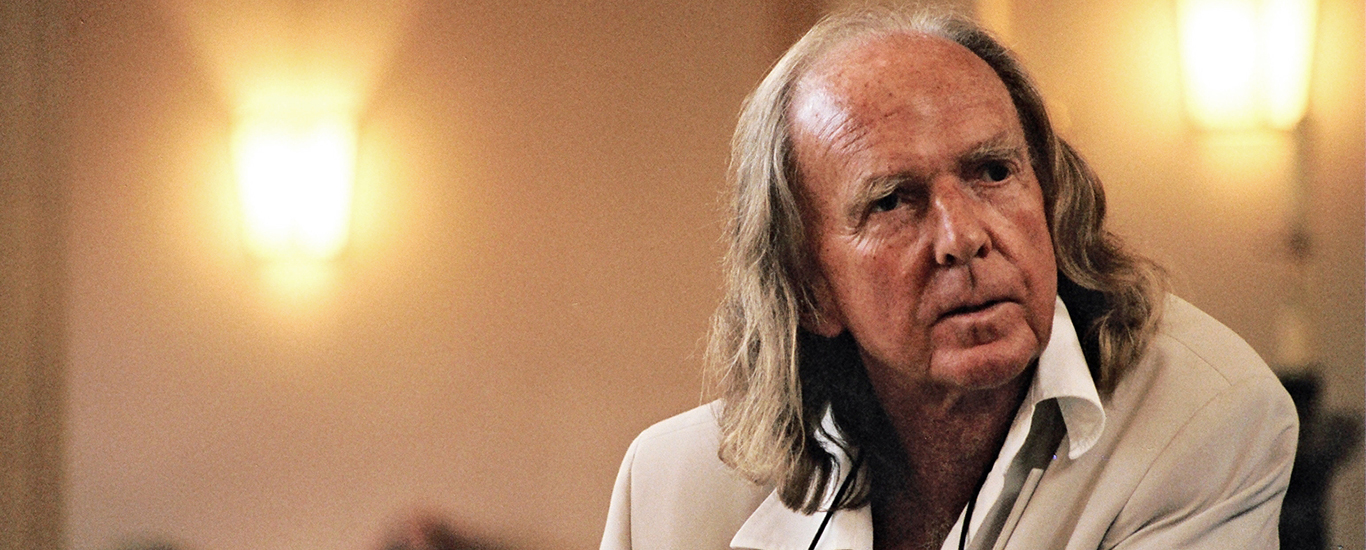John Tavener first came to public attention in 1968 with the premiere of his oratorio The Whale at the inaugural concert of the London Sinfonietta. The Beatles subsequently recorded this on their Apple label. Although Tavener's avant-garde style of the seventies contrasts with the contemplative beauty of his works for which he is best known, the seeds of the language he would later adopt were already in evidence. His early compositions, notably "Thérèse" (1973) commissioned by the Royal Opera House and "A Gentle Spirit" (1977) after the short story by Dostoyevsky, showed that spirituality and mysticism were to be his primary sources of inspiration. His conversion to the Orthodox Church in 1977 resulted from his growing conviction that Eastern traditions retained a primordial essence that the west had lost. Works such as "The Lamb" (1982), and the large-scale choral work "Resurrection" (1989) date from this period. It was in 1989 that Tavener once again came firmly into the limelight, when the Proms premiere of The Protecting Veil introduced his music to a new audience. The opera Mary of Egypt premiered at the Aldeburgh Festival in 1992.
The same year, a major documentary, "Glimpses of Paradise" was broadcast on BBC2. His 50th birthday year was marked in 1994 by the BBC's Ikons Festival, as well as another major Proms commission - The Apocalypse. In 1997, the performance of Song for Athene at the close of Princess Diana's funeral showed that the profound effect of his music reached far beyond just the concert-going public. The premiere of A New Beginning played out the final minutes of 1999 in London's Millennium Dome; on 4 January 2000, Fall and Resurrection was premiered at St Paul's Cathedral, broadcast on both television and radio; he received a Knighthood in the Millennium Honours List, and later the same year, London's South Bank Centre presented a major festival of his music. Overseas commissions increased, notably with Lamentations and Praises (2000) for the San Francisco-based Chanticleer (whose recording of the work secured for Tavener the Grammy award for Best Classical Contemporary Composition in 2003) and Ikon of Eros (2001) for the Minnesota Orchestra.
Tavener was then led to look for inspiration from alternative sources by his interest in the universalist philosophy of the late Swiss metaphysician Fritjhof Schuon, which embraces all great religious traditions. This change in direction is manifest in works written since 2001 - notably The Veil of the Temple, Lament for Jerusalem (which uses both Christian and Islamic texts), and Hymn of Dawn, based on Hindu, Sufi, Christian and Jewish texts, as well as the music of the American Indians. Other works include the song-cycle "Schuon Lieder"; "Pratirupa", for piano and strings; and numerous choral works including "Elizabeth Full of Grace", a commission from HRH the Prince of Wales. His projects also include "Lalishri", a work for solo violin and strings written for Nicola Benedetti and a Requiem premiered in 2008 in Liverpool for the celebrations of the European Capital of Culture.


